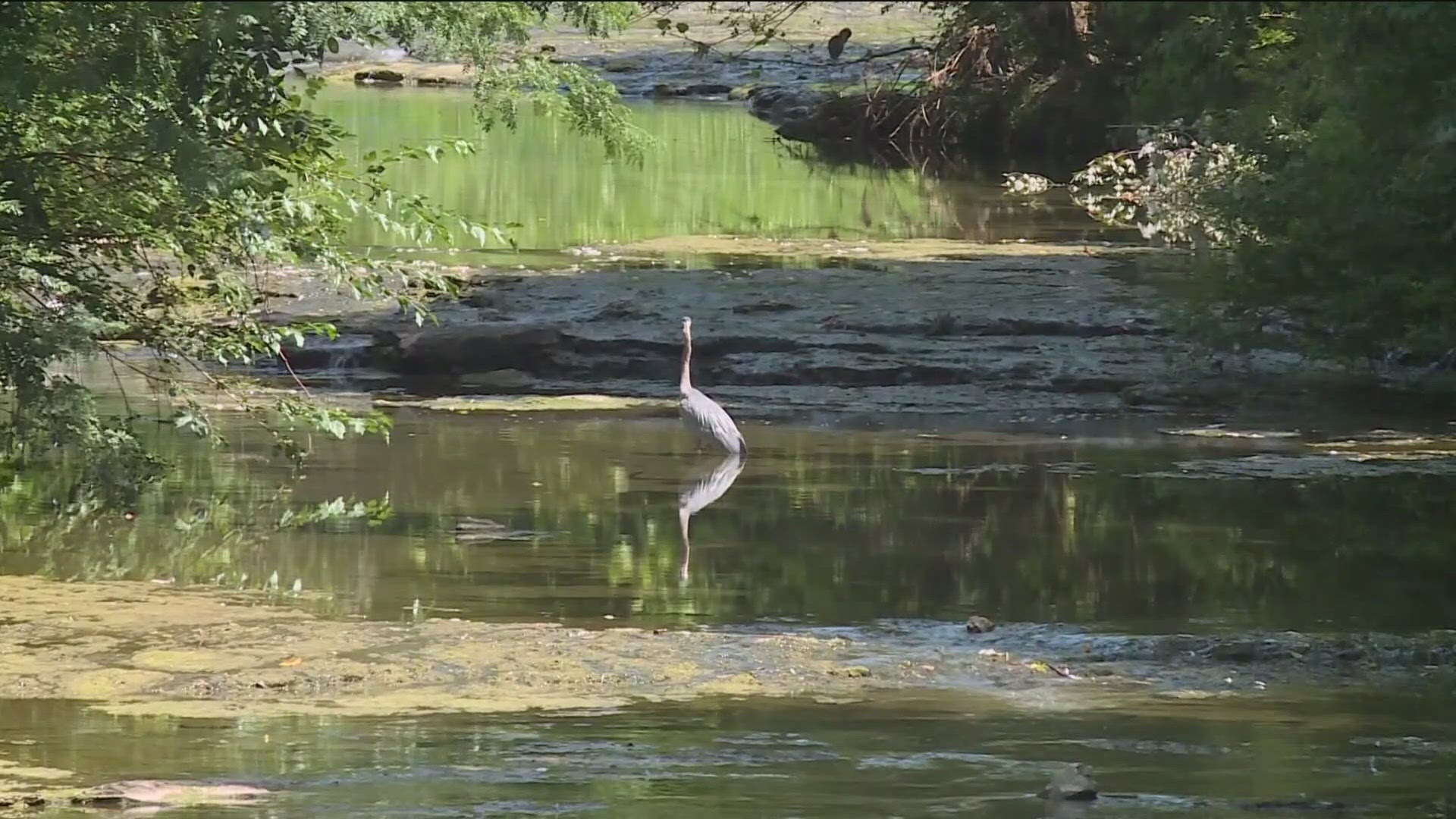ARKANSAS, USA — The Arkansas Game and Fish Commission (AGFC) wants to remind Natural State residents of a natural phenomenon that occurs during the sweltering summer heat: fish kills.
When a large group of fish dies off in this summer heat, AGFC says it's because the way oxygen supply in the water depletes.
"One of the things we run into during the summertime, when we have excessively warm temperatures, is a corresponding drop in dissolved oxygen while those temperatures are going up. And essentially, there's just not enough oxygen in the water," Trey Reid, a spokesperson for AGFC, explained.
In a press release, AGFC compares the phenomenon to anyone who's "had their breath taken away after sitting in a car that’s been parked in the summer sun." They say the same holds true for fish and the water they live in.
Reid also explained that the heat not only depletes the dissolved oxygen in the water but also evaporates the water itself. It leaves the fish competing with themselves and the vegetation.
"Especially this time of year, it's the growing season that vegetation has an impact on it too, the amount of vegetation, the number of fish in a body of water," Reid said.
Recently, Lake Conway in Central Arkansas faced this issue. The lake is undergoing renovations which brought water levels down from 6000 acres to 2000 acres. AGFC had removed limits to fish out the remaining supply and also say some might've swum out to the Arkansas River, but those left behind had to compete for the oxygen resulting in fish kill.
While other large lakes aren't being renovated thus dropping levels, they could still see fish kills when the weather drastically changes temperatures.
"The water on the surface sinks, and the water on the bottom comes to the surface, much less oxygen in it, and that will sometimes result in a fish kill," Reid explained.
Reid said it was unfortunate that fish kills happen but explained that it doesn't leave a lasting impact.
"If you have a five-acre farm pond and you know, you lose 1000 fish, well, that's going to be significant, and you may even have to do some restocking," Reid said. "But in most of our larger bodies of water where we get fish kill reports, there are insignificant population level impacts and insignificant, for the most part, ecosystem impacts."
Ultimately, Reid said if you'd like to avoid the chance of a fish kill happening in a body of water, the best solution is to aerate the water.
"One of the biggest things that somebody's like at a private pond can do is to create some sort of movement in the water an aeration system," Reid said.
Reid said you could use a fountain in a pond or even a paddle wheel aerator typically used in Arkansas' aquaculture facilities. For many of our larger lakes, tributaries do this job by simply keeping flowing water and mixing oxygen in.
"A lot of anglers know that fishing in a place like Beaver Lake, where a creek or tributary or something comes in, where that moving water is, is often a good place to fish," Reid added.
While a fish kill could likely be caused by the temperatures and depleted oxygen levels, Reid asks anyone who comes across a fish kill to contact Arkansas Game and Fish so they can rule out anything that isn't mother nature at play. You can find a list of AGFC's regional offices available on their website.
Watch 5NEWS on YouTube.
Download the 5NEWS app on your smartphone:
Stream 5NEWS 24/7 on the 5+ app: How to watch the 5+ app on your streaming device
To report a typo or grammatical error, please email KFSMDigitalTeam@tegna.com and detail which story you're referring to.

